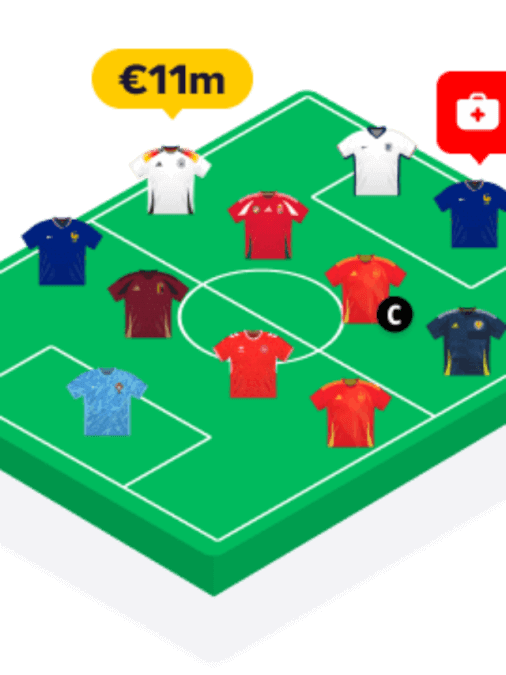In the competitive world of youth sports, the pursuit of improved performance has led many young footballers and their parents to consider sports supplements.
However, with a myriad of options available, understanding the safety and efficacy of these products is crucial.
This article aims to provide a comprehensive overview of common sports supplements, their potential benefits, safety concerns, and when, if ever, they might be necessary for young athletes.
1. Understanding Sports Supplements
Definition of Sports Supplements
Sports supplements refer to a range of products designed to enhance athletic performance and recovery. These can include:
- Protein Powders: Supplements that provide concentrated protein for muscle building and recovery.
- Creatine: A compound that helps replenish energy during high-intensity activities.
- Pre-Workouts: Formulations that typically contain stimulants to boost energy and focus.
- Branched-Chain Amino Acids (BCAAs): Essential nutrients that may aid in recovery and reduce muscle soreness.
- Electrolyte Supplements: Products aimed at replenishing lost minerals during intense physical activity.
Popularity and Usage Trends
The use of supplements among young athletes is on the rise. Many athletes believe that these products can help improve performance and recovery times.
However, it’s essential to prioritize a balanced diet rich in whole foods before considering supplements, as highlighted in our article on the importance of proper nutrition for young footballers.
2. Common Sports Supplements and Their Effects
Overview of Common Supplements
| Supplement | Benefits | Safety Concerns |
|---|---|---|
| Protein Powders | Aids muscle recovery and growth | Excess protein can strain kidneys; may contain additives |
| Creatine | Increases strength and power | Potential dehydration and digestive issues; not suitable for all |
| Pre-Workouts | Boosts energy and focus | Can cause jitteriness, anxiety, and heart palpitations |
| BCAAs | Reduces muscle soreness | Limited evidence of benefit for young athletes |
| Electrolytes | Supports hydration and performance | Overconsumption can lead to imbalances |
Safety and Efficacy
While many sports supplements are safe when used correctly, the efficacy of these products can vary. Research suggests that while protein powders can help meet protein needs, whole food sources are usually preferable.
For a deeper dive into understanding nutrition labels and making informed choices, refer to our guide on smart nutrition for young footballers.
3. When Supplements Might Be Necessary
Nutritional Deficiencies
In certain circumstances, supplements may be necessary for young athletes, particularly when dietary restrictions lead to nutritional deficiencies.
For instance, a vegetarian athlete may require a protein supplement to meet their protein needs. Identifying these deficiencies early can be crucial; parents and coaches should consult healthcare professionals to determine the best course of action.
Performance Goals
Some young athletes may have specific performance goals that require extra support. For example, during intensive training periods, such as pre-tournament preparations, additional protein or electrolyte supplementation might be beneficial.
This concept ties in with our previous discussion on why young footballers need a balanced diet during tournaments and intensive training.
4. What to Look Out For
Quality and Safety Considerations
When considering supplements, quality is paramount. Here are key factors to evaluate:
- Brand Reputation: Choose brands that are well-established and trusted in the industry.
- Third-Party Testing: Look for certifications from organizations like NSF Certified for Sport or Informed-Sport.
- Label Transparency: Understand what’s in the supplement by reading labels carefully. For more on how to read labels effectively, see our article on smart nutrition for young footballers.
Legal and Ethical Considerations
Young athletes must be aware of banned substances in youth sports. Compliance with guidelines set by sports governing bodies is essential to ensure fair play.
For parents and coaches, understanding these regulations can help in guiding athletes towards safe supplement choices.
5. Expert Recommendations
Guidelines from Health Professionals
Health professionals, including sports dietitians and pediatricians, often recommend focusing on a balanced diet rather than supplements.
Supplements should be viewed as an adjunct to nutrition, not a replacement. Whole foods provide essential vitamins, minerals, and other nutrients necessary for athletic performance.
Tips for Parents and Coaches
Parents and coaches play a vital role in supporting young athletes. Encouraging a balanced diet and educating them about the potential risks of supplements is essential.
For meal ideas that can support young athletes, check out our article on healthy family cooking: fun recipes for young footballers and their families.
Conclusion
While sports supplements can offer potential benefits for young footballers, they should be approached with caution. Understanding the safety, efficacy, and necessity of these products is crucial for informed decision-making. Ultimately, a balanced diet remains the cornerstone of optimal performance in young athletes.
Key Takeaways
| Takeaway | Details |
|---|---|
| Prioritize Whole Foods | Whole foods are preferable for meeting nutritional needs. |
| Be Informed About Supplements | Research and choose high-quality, reputable brands. |
| Consult Healthcare Professionals | Seek advice for specific nutritional needs and deficiencies. |
| Understand Regulations | Be aware of banned substances in youth sports. |
| Focus on Overall Health | Nutrition, hydration, and proper training are essential for young athletes. |
By staying informed and making educated choices about nutrition and supplementation, young footballers can enhance their performance while ensuring their long-term health and well-being.









